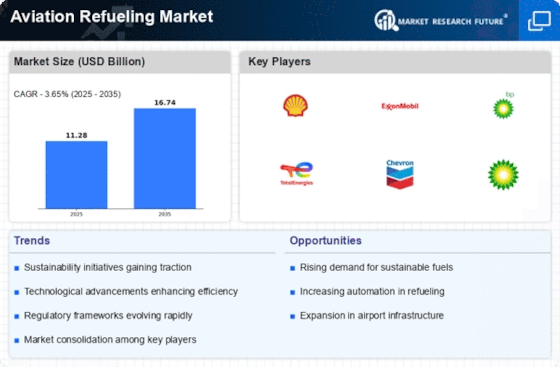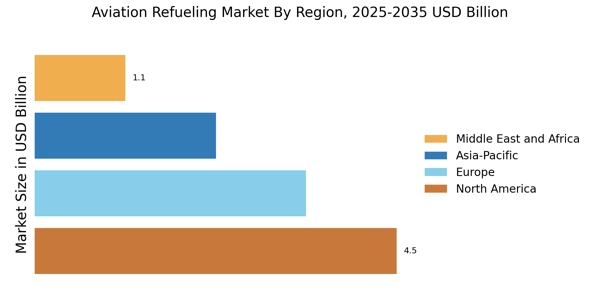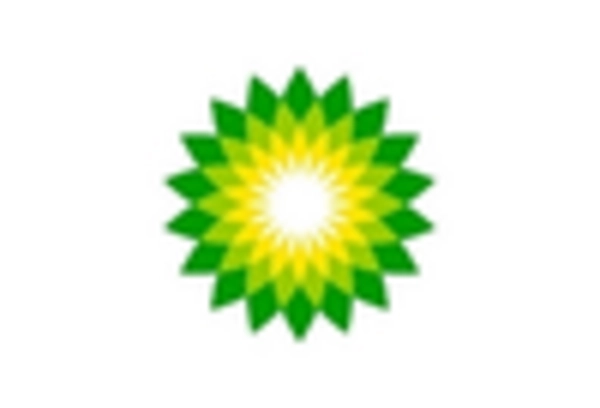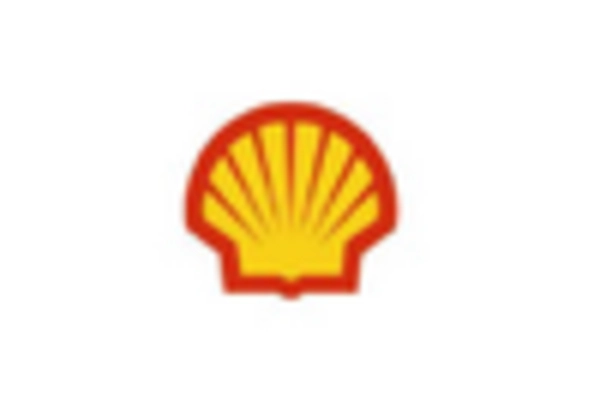Increasing Air Traffic Demand
The Aviation Refueling Market is experiencing a notable surge in demand due to the increasing air traffic across various regions. As more airlines expand their fleets and introduce new routes, the need for efficient and reliable refueling services becomes paramount. According to recent data, air traffic is projected to grow at an annual rate of approximately 4.5% over the next decade. This growth is likely to drive the Aviation Refueling Market, as airports and refueling service providers must adapt to accommodate the rising number of flights. Additionally, the expansion of low-cost carriers is contributing to this trend, further intensifying the competition among refueling service providers to offer cost-effective solutions. Consequently, the Aviation Refueling Market is poised for significant growth as it aligns with the evolving dynamics of air travel.
Strategic Partnerships and Collaborations
Strategic partnerships and collaborations are emerging as a key driver in the Aviation Refueling Market. As the complexity of aviation operations increases, refueling service providers are seeking alliances with airlines, airports, and technology firms to enhance service offerings and operational capabilities. These collaborations can lead to shared resources, improved technology integration, and expanded service networks. For instance, partnerships between refueling companies and technology providers can facilitate the development of innovative refueling solutions that enhance efficiency and safety. Additionally, such alliances may enable companies to better navigate regulatory challenges and market fluctuations. The trend towards strategic collaborations indicates a shift in the Aviation Refueling Market, where companies are likely to leverage synergies to remain competitive and responsive to evolving market demands.
Regulatory Compliance and Safety Standards
The Aviation Refueling Market is heavily influenced by stringent regulatory compliance and safety standards imposed by aviation authorities. These regulations are designed to ensure the safe and efficient operation of refueling services, which are critical to maintaining flight safety. As the industry evolves, refueling service providers must continuously adapt to new regulations, which may include updated safety protocols and environmental standards. For instance, the International Civil Aviation Organization (ICAO) has established guidelines that impact refueling operations. Compliance with these regulations not only enhances safety but also fosters trust among airlines and passengers. The need for adherence to these standards is likely to drive investments in advanced refueling technologies and training programs, thereby shaping the future of the Aviation Refueling Market.
Sustainability and Environmental Considerations
Sustainability is becoming a central theme within the Aviation Refueling Market as stakeholders increasingly prioritize environmental considerations. The aviation sector is under pressure to reduce its carbon footprint, prompting refueling service providers to explore alternative fuels and more sustainable practices. The adoption of biofuels and synthetic fuels is gaining traction, as these options can significantly lower greenhouse gas emissions compared to traditional jet fuels. Furthermore, regulatory bodies are encouraging the use of sustainable aviation fuels (SAFs) through incentives and mandates. This shift towards sustainability not only aligns with The Aviation Refueling Industry. As airlines commit to sustainability targets, the demand for eco-friendly refueling solutions is likely to rise, shaping the future landscape of the industry.
Technological Advancements in Refueling Systems
Technological advancements are playing a pivotal role in transforming the Aviation Refueling Market. Innovations such as automated refueling systems, real-time monitoring technologies, and advanced fuel management systems are enhancing operational efficiency and safety. These technologies enable refueling service providers to optimize fuel delivery processes, reduce turnaround times, and minimize human error. For example, the integration of Internet of Things (IoT) devices allows for better tracking of fuel inventory and consumption patterns. As airlines increasingly seek to improve operational efficiency and reduce costs, the adoption of these technologies is expected to accelerate. This trend indicates a shift towards more sophisticated refueling solutions, which could significantly impact the competitive landscape of the Aviation Refueling Market.


















